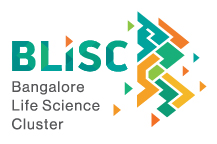A major project has been launched to indigenously manufacture, in bulk quantities and at much lower costs, all reagents needed for RT-qPCR-based and other molecular methods of diagnostics of Covid-19. The Rockefeller Foundation has provided financial support for the project executed by the Bangalore Life Science Cluster, which would improve access to Covid-19 diagnostics across the country.
The COVID-19 pandemic has been unprecedented and has severely affected countries across the world. India, with its large population of more than 1.3 billion, is scaling to test rapidly and widely across its population. Considering the nature of the virus, its mode of transmission and non-availability of effective drugs and vaccines, the best way to check the spread of the infection and save lives (and livelihoods) is by testing larger number of individuals and isolating the positive cases. In this context, there is an urgent need to scale up the production of RT-PCR and other molecular diagnostic testing kits in the country.
The newly launched project called Indigenisation of Diagnostics (InDx), anchored at Centre for Cellular and Molecular Platforms (CCAMP), aims to build a robust supply-chain network of Indian MSMEs capable of producing reagents that go into a testing kit as well as manufacture testing kits. The project involves identifying bottlenecks in the supply-chain network, short-falls in quality levels and gaps in the ability of these MSMEs to scale-up. The project would hand-hold MSMEs in meeting both quality and quantity such that the network would be able to put together a million indigenous kits a day. The project employs a dynamic digital supply-chain platform developed pro-bono by Tata Consultancy Services (TCS). In addition, the project envisages providing support to maintain a sustainable business plan for the consortium with the help of experts in the field.
Prof K VijayRaghavan, the Principal Scientific Advisor to the Govt of India, who is overseeing India's efforts of indigenisation of biomedical products, said "this is a multipurpose project addressing not only the Covid-19 crisis, but aimed at helping MSMEs to expand their business opportunities and to improve the overall healthcare system by developing more high quality, but low cost molecular diagnostics. Important collaboration with The Rockefeller Foundation will enable our MSMEs to meet global standards”.
"The generous support by The Rockefeller Foundation and enthusiastic response by MSMEs to participate in the proposed supply-chain network has given the confidence that we would be able to meet the target of 1 million kits per day within the next few months", says Dr Taslimarif Saiyed, CEO of CCAMP, who heads the project at Bangalore LifeScience Cluster.
Prof Satyajit Mayor, Director of NCBS, Bangalore, an advisor to the project says "This initiative may help innovations in our ability to meet global quality and thereby our MSMEs may not only be able to serve the Indian market and be able to export to the other needy countries at very competitive prices. We hope to expand the project to include other new molecular diagnostic methods such as Lateral Flow Assays or LAMP-based assays for COVID19 testing, newly developed saliva-based sampling tests, which are point of care tests and also scalable to test at scale".
Prof Mayor went on to add that, “the BLiSC Campus where C-CAMP is located is the ideal location for such a project because of the large bank of in-house expertise and relevant resource readily available at NCBS and inStem.”
Strengthening India's ability to develop fully indigenous diagnostic kits is expected to improve the entire healthcare system as affordable molecular diagnostics may soon be available for other diseases, particularly cancer and rare tropical diseases" says Prof LS Shashidhara, Dean (Research) at Ashoka University, who is also an advisor to the project.










0 Comments